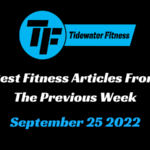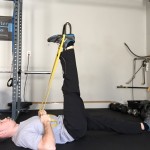The health and wellness industry is expected to be worth 1 trillion dollars by 2017. Yes, you read that right. 1 trillion dollars!
This industry is home to categories like fitness, nutrition, supplements, clothing, and wearable tech. The market has a huge reach, not only in America, but around the world too. And within any market, there are bound to be claims, lies, and deceit to trick people into believing an idea or buying a product.
Lately, I’ve been seeing a prevailing idea within the fitness and nutrition industry. It’s this belief that you have to “earn your carbohydrates”. Basically, this means that you must workout before any carbohydrate-rich foods are eaten.
The idea of earning your carbs stems from the fact that the majority of people are more apt to over-consume carbohydrates because they are highly palatable.
Research shows us that, once carbohydrates are eaten, they’re broken down and stored within our muscles and liver. Carbohydrates are our main source of energy for high-intensity activity. If we aren’t performing this type of activity, these storage reserves remain full.
If these units are full and more carbs are eaten, they’re stored as body fat. Nate Miyaki, a physique and nutrition specialist, has a great car analogy to describe this. He says:
“If your car has been sitting in the garage, it doesn’t need gas. Loading up on carbs is like trying to fill up a full tank. It just spills over the side.
In the human body, that overspill equates to sugar backing up in the bloodstream (high blood glucose). This in turn leads to body fat storage and a host of other negative effects like elevated triglycerides and cholesterol, insulin resistance, and type II diabetes.
However, if you drive your car around every day, sometimes for long mileage, you have to fill it up often. If you don’t, you’ll run out of gas.”
You see, it’s the over-consumption of carbohydrates that are the problem, not the carbohydrates themselves. Knowing that, it would makes sense that earning your carbohydrates after a workout would help you be healthier and carry less body fat.
However, the reason why this is a terrible idea is because of the mindset that follows it.
If you create the view that you need to earn our carbs, this means you HAVE TO exercise in order to enjoy food. And when you create this unhealthy association between food and exercise a negative mindset is bound to erupt.
Think about your birthday for example. Let’s say your family has purchased your favorite cake to celebrate. They go to cut a slice and the only thing you’re thinking about is how you didn’t exercise that day.
You wonder if you should enjoy it at all. But you can’t let your family down after they bought it for you, right? So you feel forced to eat it and are left with this feeling of guilt afterward.
Once you feel guilty, you think to yourself: “I’ve already screwed up today so it doesn’t even matter”. Instead of enjoying and savoring 1 piece of cake you end up scarfing down 4 pieces.
Does that sound like a good birthday to you? Absolutely not, and yet that’s the message so many fitness and nutrition professional are spreading.
So, do you need to “earn your carbohydrates”?
Here’s the real truth. Carbs are part of a healthy diet. The reason so many people struggle with overeating them is because most of their carbohydrates come from processed foods like cookies, candy, and ice cream.
Carbohydrate-rich foods like like sweet potatoes, beans, and quinoa contain a host of nutrients, vitamins, and minerals that can improve your health. They also contain fiber and protein making them harder to overeat.
One simple rule I follow, and encourage my clients to follow, is to eat less carbs on days you aren’t as active, as outlined in my fundamental nutrition habits for fat loss article. By doing this, you can still have carbohydrates but it decreases your chances of overeating them. It also decreases the chances of sugar backing up in the blood stream like Nate Miyaki spoke about.
And things like cookies, candy, and ice cream can still be enjoyed on days you don’t exercise by following the 85/15 approach. It all comes down to finding balance.
This idea of earning your carbs needs to stop. It’s a sure fire way to develop an unhealthy relationship with food. Be moderate in your nutritional approach. Be active because you appreciate the ability to move not because you feel forced to. Create harmony between these areas and you’ll certainly feel less restriction and more enjoyment towards food and fitness.






